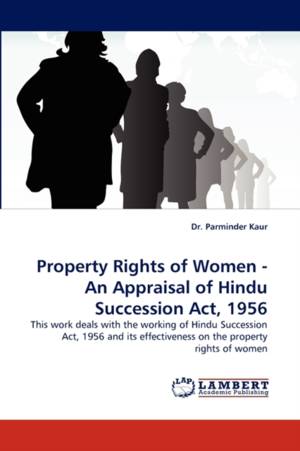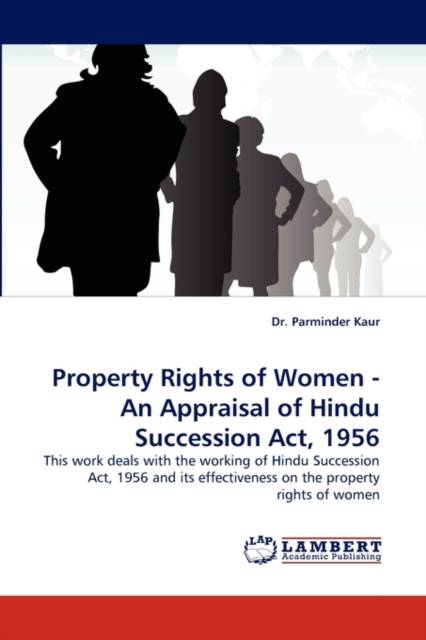
Je cadeautjes zeker op tijd in huis hebben voor de feestdagen? Kom langs in onze winkels en vind het perfecte geschenk!
- Afhalen na 1 uur in een winkel met voorraad
- Gratis thuislevering in België vanaf € 30
- Ruim aanbod met 7 miljoen producten
Je cadeautjes zeker op tijd in huis hebben voor de feestdagen? Kom langs in onze winkels en vind het perfecte geschenk!
- Afhalen na 1 uur in een winkel met voorraad
- Gratis thuislevering in België vanaf € 30
- Ruim aanbod met 7 miljoen producten
Zoeken
Property Rights of Women - An Appraisal of Hindu Succession Act, 1956
This work deals with the working of Hindu Succession Act, 1956 and its effectiveness on the property rights of women
Parminder Kaur
Paperback | Engels
€ 113,45
+ 226 punten
Omschrijving
The book deals with proprietary rights of women provided under Hindu succession Act, 1956. This is one of the most controversial aspects because property rights are given to the women but due to certain pre-determined social norms the women fails to exercise their rights. No doubt, to further strengthen the proprietary position, Hindu Succession Act, 1956 was amended in 2005. The amendment tries to plug the loopholes existed in 1956, but the questions remains that whether the women would exercise those rights which were provided to them under this Amended Act? In this work an effort was made to study the effect of Hindu Succession Act, 1956(along with Amendment Act, 2005)on the proprietary rights of women, the loopholes which still existed in the Act and finally suggestions were made to make it more effective. some excerpts of the work has also been referred by Karnatka High Court while deciding the property matters concerning woman.
Specificaties
Betrokkenen
- Auteur(s):
- Uitgeverij:
Inhoud
- Aantal bladzijden:
- 280
- Taal:
- Engels
Eigenschappen
- Productcode (EAN):
- 9783844321159
- Verschijningsdatum:
- 9/05/2011
- Uitvoering:
- Paperback
- Afmetingen:
- 152 mm x 229 mm
- Gewicht:
- 413 g

Alleen bij Standaard Boekhandel
+ 226 punten op je klantenkaart van Standaard Boekhandel
Beoordelingen
We publiceren alleen reviews die voldoen aan de voorwaarden voor reviews. Bekijk onze voorwaarden voor reviews.









